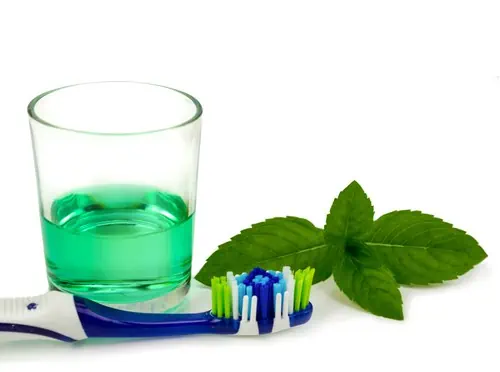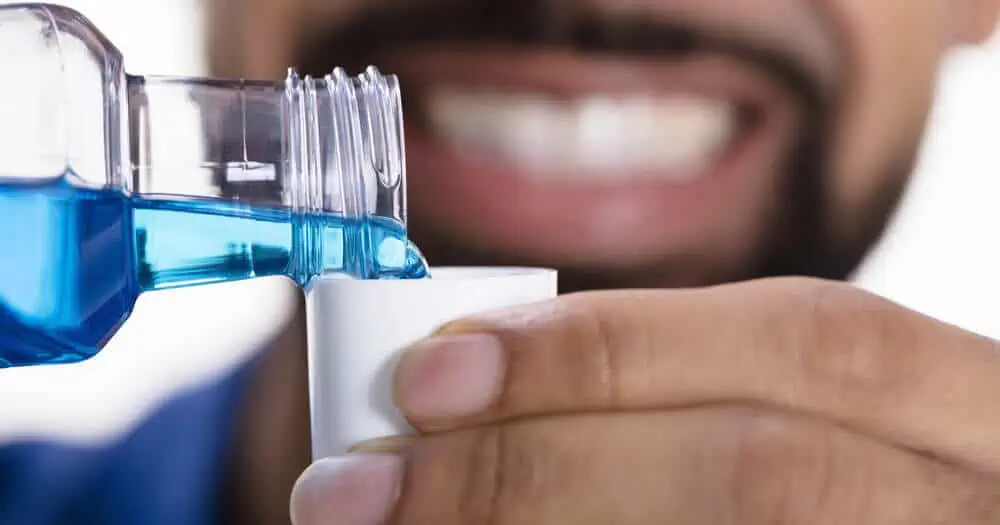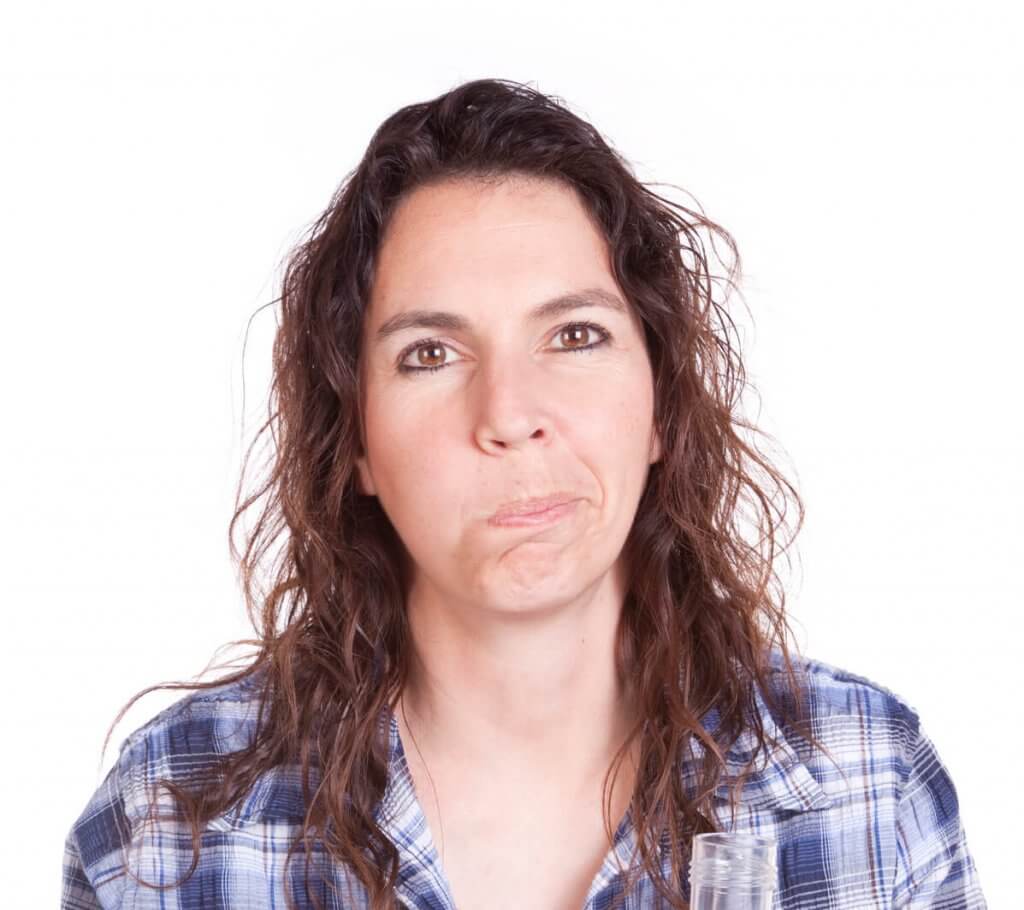Mouthwash can freshen breath and eliminate cavity-causing bacteria. But at the same time, store-bought brands are full of chemicals and are not always cheap. The solution? Homemade mouthwash.
Learn how to make your own mouthwash at home and say goodbye to unnecessary chemicals and costs.
If you’ve never made your own mouthwash, you probably have a couple of questions about how to go about doing so.
We’ll answer the following questions:
- What is the best mouthwash with natural ingredients?
- How can you make your own mouthwash?
- Is using hydrogen peroxide as a mouthwash safe?
- What can you use instead of mouthwash?
Let’s get started!
Why some dentists recommend using mouthwash
There aren’t any official guidelines set out by the dental community when it comes to using mouthwash. But you can have a look at what Dr. Alex Rodriguez says about whether or not you should use mouthwash in the video below.
As you can see, there are no set rules when it comes to mouthwash, and if you use it, the kind you use will depend on your particular mouth. Many dentists believe that mouthwash is beneficial to your oral health, but others believe that using mouthwash after meals is overrated. It’s possible that both sides are correct.
The American Dental Association points out that it “may be a helpful addition” to brushing and flossing in your oral hygiene routine. The reasons? Mouthwash can reach areas that are difficult to reach with a toothbrush and help reduce or control plaque, gingivitis, bad breath, and tooth decay.


That being said, dentists also advise against using over-the-counter, cosmetic, and therapeutic mouthwashes more than the prescribed limit. Ready-made mouthwash can sometimes be harmful to your teeth because it generally contains alcohol and other chemicals. If your mouth is particularly sensitive to alcohol, commercial mouthwash can cause dry mouth and other oral health issues — but you may want to check out our article on mouthwash for sensitive teeth.
In this case, we recommend making your own natural mouthwash recipe at home. Yes, it’s possible! Let’s take a look at some easy DIY recipes for mouthwashes that you can easily make at home.
How to make your own homemade mouthwash
The beauty of making your own mouthwash is that you control the ingredients that go into it. You can go for all-natural ingredients or can also add some helpful chemicals like hydrogen peroxide (if you’re cautious). The best part is that it’s much less expensive than commercial products.
Before we get into recipes, let’s talk about some common ingredients used in DIY mouthwash and the functions that they have.
Essential oil in mouthwash


There are all sorts of essential oils that you can include in your mouthwash. These oils are said to have antiseptic and antimicrobial properties that help control bacteria in the mouth. Thanks to its classic flavor, peppermint is the most popular essential oil in mouthwash, providing that fresh menthol feeling after you rinse.
Others such as clove oil, tea tree oil, oregano oil, and coconut oil are perfectly acceptable substitutes in your mouthwash if you prefer a different flavor profile. Some oils, like witch hazel, are said to reduce inflammation or bleeding. You should know that some of these claims have limited scientific support but have been used traditionally for years.
Even though they have similar properties, different brands and flavors of essential oils are not the same. Many mouthwash recipes will combine several types to maximize the benefits you receive. For example, there is an essential oil blend called thieves oil that is often used in recipes on its own or combined with others.
Spices and plant products
Sometimes instead of using oils, DIYers will use spices or other types of plant extracts in their mouthwash. Two very common examples are aloe vera water and xylitol, used to soothe pain and reduce plaque buildup. Xylitol also acts as a low-calorie sweetener. Spices like clove, cinnamon, and turmeric are used in mouthwash not just for their flavor, but also for various health benefits.
Turmeric has been used for centuries in Ayurvedic medicine as an anti-inflammatory and antioxidant and reduces the risk of heart disease. Clove is a popular ingredient in mouthwash for its remineralizing properties. Cinnamon and star anise are also believed to reduce cholesterol and blood sugar and alleviate cramps and nausea.
Finally, apple cider vinegar and blue-green algae are both known to be effective pH neutralizers in mouthwash, which help keep bacteria and yeast at healthy levels. This is important for treatment and prevention of oral thrush.
Abrasives, whiteners, and more
Oils and extracts from plants are all well and good, but there are certain benefits from mouthwash that they don’t provide. In some cases, essential oils can help but won’t be as effective as other active ingredients. Here’s a list of common active ingredients in DIY mouthwash and their effects:
- L-Arginine has been shown to remineralize tooth enamel and fight decay.
- Calcium carbonate is an abrasive that helps loosen food particles and provides some remineralization.
- Activated charcoal acts as a whitening agent and an abrasive for removing plaque and tartar.
- Salt is an age-old antimicrobial ingredient and helps regulate pH.
- Hydrogen peroxide is antiseptic and can also be found in many whitening products.
- Baking soda in mouthwash loosens mucus and debris and can also help remove extrinsic staining (surface stains).
- Colloidal silver is said to have purifying effects in mouthwash, reducing inflammation and fighting bacteria.
So now you know what to use in your homemade mouthwash, though you won’t be using all of these ingredients at once. Exactly which ones and the quantities of each will depend on the effects you want from your mouthwash. So let’s look at some of the best home recipes for mouthwash that you can use as a template to adapt as necessary, depending on your desired outcome:
Hydrogen peroxide antiseptic mouthwash recipe
Ingredients
- 1/2 cup hydrogen peroxide (3% concentration)
- 1 cup distilled water
- 1 tsp salt
Instructions
- Combine all ingredients in a bowl
- Mix well, until salt is dissolved
- Use about a teaspoon per rinse
This really simple hydrogen peroxide mouth rinse reduces irritation. Though you can include some essential oils as well, they may react with the peroxide, reducing the effectiveness of both ingredients. Do not use this mouthwash if you have recently had mouth surgery; opt instead for a saltwater mouth rinse.
Soothing aloe vera mouthwash (with optional charcoal)
Ingredients
- 1/2 cup distilled or purified water
- 1/2 cup aloe vera water
- 2 tsp baking soda
- 12–15 drops peppermint oil
- 1 tsp fractionated coconut oil (regular coconut oil is solid at room temperature)
Optional: 1 tsp activated charcoal powder
Instructions
- Combine water, aloe, and baking soda in a glass bottle.
- Add peppermint and coconut oils.
- Close and shake vigorously to mix.
- Use 1–2 tsp per rinse.
The aloe and coconut are ideal for alleviating mouth pain and helping treat canker sores. If you want a whitening effect, add a teaspoon of activated charcoal powder together with the essential oils. The mouthwash will also leave you with a soothing herbal sensation after rinsing thanks to the peppermint oil.
DIY remineralizing mouthwash
Ingredients
- 1/2 tsp calcium carbonate
- 1/2 tsp L-arginine
- 2–3 star anise pods
- 1/4 tsp blue-green algae
Instructions
- Soak anise stars for a few hours in hot water.
- Combine L-Arginine and calcium carbonate in a different bowl with water.
- Add algae and soaked anise stars to the bowl with other ingredients. Mix well and grind in a blender.
- Use about 1 teaspoon for each rinse.
The resulting solution will help you effectively treat cavities through a natural process that will normalize the pH level of the mouth while creating a balance of healthy saliva and good bacteria.
All-purpose natural turmeric mouth wash
Ingredients
- 1/2 tsp calcium carbonate
- 1/2 tsp L-arginine
- 1/2 tsp baking soda
- 2–3 cloves
- 4–5 drops peppermint essential oil
- 1/2 tsp turmeric
Instructions
- Soak cloves in water overnight.
- Add calcium carbonate, L-arginine, baking soda, and turmeric to 1 cup of fresh water.
- Now add soaked cloves and peppermint essential oil. Grind and whisk the solution.
- Use 1 teaspoon for each rinse.
Turmeric can help prevent inflammation in your mouth. This homemade mouthwash recipe can help prevent periodontal diseases and tooth decay and reduce teeth stains. If you want to include other spices like cinnamon or star anise, simply soak a small amount with the cloves and continue as instructed.
Though chlorhexidine is an effective mouthwash ingredient, it can sometimes result in allergic reactions. Curcumin is a polyphenol present in turmeric that serves as a natural alternative to chlorhexidine.
Turmeric mouthwash has an acceptable taste and is also biocompatible. Some scientific studies have noted that turmeric mouthwash has anti-plaque properties comparable to chlorhexidine mouthwash. Also, turmeric mouthwash doesn’t have the bitter taste that can come with chlorhexidine mouthwash.
Based on this, we can say that turmeric mouthwashes have comparable anti-plaque, anti-inflammatory, and anti-microbial properties. Turmeric mouthwash is biocompatible and can be well tolerated by most people without side effects.
Dr. Rashmi Byakodi
pH Balancing baking soda and thieves oil mouthwash
Ingredients
- 1 cup water (distilled or purified)
- 5 drops peppermint oil
- 3 drops thieves oil
- 1 1/2 tsp baking soda
- 1 tsp xylitol
Instructions
- Combine baking soda and xylitol with water in a glass jar.
- Add essential oils.
- Thoroughly mix together.
- Use about a tablespoon per rinse.
Certain foods can be quite damaging for our teeth, especially the ones with high acid levels. These foods cause the pH level of mouth saliva to be more acidic. With the help of this baking soda mouth rinse, you can maintain correct pH levels and still enjoy your favorite acidic foods like apples and coffee.
If you want to try making some of these natural DIY mouth rinses, we’ve put together this handy chart of ingredients:
Ingredient | Effect | Where to buy |
Aloe vera water | Soothing, antiseptic | |
Coconut oil | Soothing, antiseptic | |
Peppermint oil | Anti-inflammatory, antiseptic | |
Thieves oil | Antimicrobial, antiseptic | |
Witch hazel | Anti-inflammatory | |
Blue-green algae | pH neutralizer | |
Xylitol | Sweetender, reduces plaque | |
L-Arginine | Remineralization, reduces plaque and tartar | |
Calcium carbonate | Remineralization | |
Activated charcoal | Whitening, abrasive |
Can mouthwash be harmful? What can you use instead of mouthwash?
Commercial mouthwash often contains harsh chemicals. In theory, if you use your mouthwash according to the instructions, and never swallow it, you should be OK. If you want to be especially safe, make sure only to use mouthwash with the ADA seal of acceptance.
Additionally, a mouthwash with alcohol or hydrogen peroxide may work for some people and cause harm for others. The biggest problem, though, is when mouthwash manufacturers claim results that they can’t deliver, something that the FDA is trying to crack down on.
If you want to avoid typical mouthwash, there are also a couple techniques (some of which people have used for centuries) that you can use as part of your oral hygiene routine:
- Salt mouthwash – Mix a few teaspoons of salt in lukewarm water and gently rinse your mouth after meals. This can be particularly helpful with cold sores.
- Oil pulling – This is a natural healing technique that involves rinsing your mouth with a tablespoon of coconut oil, olive oil, sesame oil, and rinsing with fresh water afterward. This essential oil mouthwash recipe can be included in the daily oral routine.
- Vinegar rinse – By diluting apple cider vinegar in water you can make a simple mouth rinse to regulate your mouth’s pH, and fight against bad breath.


Conclusion
Mouthwashes can be beneficial when it comes to maintaining good oral hygiene, and a homemade mouthwash is a viable alternative to over-the-counter natural ones. Easy to make with generic natural ingredients, this solution can also treat oral hygiene issues like bad breath.
So, if you have a knack for DIY solutions, these are ideal for you. And if you like the allure of natural mouthwashes that are free from harmful chemicals, but you don’t want to have to make your own at home, we recommend Dr. Brite’s range of natural and organic mouthwashes that soothe, clean and freshen with holistic ingredients like coconut oil, activated charcoal and aloe vera.
That said, you need to be aware that homemade and storebought solutions alike cannot substitute for brushing and flossing. These are only effective when included in oral routines that involve regular brushing and flossing at least twice a day.
FAQs
What is the best natural mouthwash for gum disease?
While there are several types of natural mouthwash that you can make at home, it’s hard to say which is the best. Select ingredients that are specific to your oral issues. So, creating the best solution will depend on what ingredients suit you better, and that depends on your dental history and personal oral hygiene needs.
Is homemade mouthwash only good for bad breath?
Homemade natural mouthwash can eliminate bad breath, but if you use the right ingredients it can help fight against gingivitis, and even strengthen your tooth enamel. The most important thing to know when making DIY natural mouthwash is what ingredients will give you the desired effect.
Is it safe to use hydrogen peroxide as a mouth rinse?
Hydrogen peroxide is easy to find and almost every drug store has it. This product can help with bad breath and stained teeth, but it’s important to dilute it properly before use.
ncbi.nlm.nih.gov: Efficacy of Mouthwashes Containing Hydrogen Peroxide on Tooth Whitening. Consulted 13th April 2020. money.cnn.com: FDA warns mouthwash makers on false claims. Consulted 11th May 2020. ncbi.nlm.nih.gov: Comparative evaluation of 0.1% turmeric mouthwash with 0.2% chlorhexidine gluconate in prevention of plaque and gingivitis. Consulted 30th November 2020 ncbi.nlm.nih.gov: The combined enamel remineralization potential of arginine and fluoride toothpaste. Consulted 30th November 2020 ema.europa.eu: ASSESSMENT REPORT ON
HAMAMELIS VIRGINIANA [Witch Hazel] Consulted 30th November 2020




